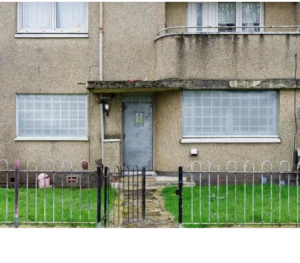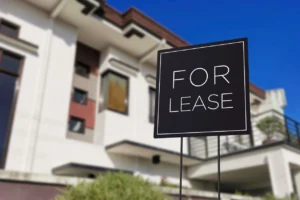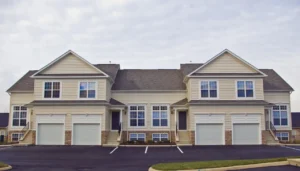What are alternatives to a cash security deposit?
 As rents seem to be increasing daily, the cost of signing a lease for a new apartment is also growing. If a tenant is required by the landlord to pay a security deposit based on one or two months’ rent for an unfurnished apartment, they may find that they have been priced out of the market. In response to the rising issue of affordability in housing, many cities and states are passing “Renter’s Choice” laws requiring security deposit alternatives.
As rents seem to be increasing daily, the cost of signing a lease for a new apartment is also growing. If a tenant is required by the landlord to pay a security deposit based on one or two months’ rent for an unfurnished apartment, they may find that they have been priced out of the market. In response to the rising issue of affordability in housing, many cities and states are passing “Renter’s Choice” laws requiring security deposit alternatives.
In January 2020, Cincinnati, Ohio, passed the first “Renter’s Choice” law in the U.S., followed by many more municipalities across the country. By July 2021, at least 12 cities and states had passed laws governing security deposit alternatives with many more in the proposal stage. Only Baltimore Mayor Brandon Scott vetoed a bill requiring certain landlords to accept alternative security deposits.
“These programs significantly lower the barriers to entry for renters, ensure property owners stay protected against excessive damages and unpaid rent and represent the best example of how collaboration between public-policy focused entrepreneurship and responsive local governments can address systemic challenges,” stated an opinion piece in The Washington Post. The article was written by John Cranley, the mayor of Cincinnati, Sharon Middleton, vice president of the Baltimore City Council and Amir Farokhi of the Atlanta City Council.
Why security deposit alternatives are necessary
Landlords and property managers have long relied on the traditional security payment to protect them from deadbeat tenants and the physical damage caused by negligent renters. But with an increasing number of tenants unable to pull together an extra one or two months’ rent at move-in, it has become clear that there need to be alternatives to the cash-only deposit.
According to a Forbes article last year, “Many Americans live paycheck to paycheck today and can’t afford these deposits or are forced to delay their move-in to save the needed funds. And if they are able to move in, when it’s time for them to move out, any deductions that are taken from a security deposit can cause tensions to arise between renters and management.”
Additionally, if the tenant had been counting on having that deposit refunded at the end of the lease to be used as a deposit on their new apartment, those deductions can cause a shortfall when signing the new lease. Combined with other fees, such as a pet deposit, key and garage door opener fees, utility deposits, moving costs and more, at the extreme end, not having that deposit can mean the difference between having a home and being homeless.
Often a rental applicant who cannot qualify for an apartment or is unable to produce the necessary security deposit will turn to a guarantor or co-signer for help. A guarantor undertakes the legal responsibility of the apartment and agrees to pay the rent if the tenant is unable to. A co-signer is an added renter who pays a portion of the move-in fees and the monthly rent. Of course, the landlord will have to approve the addition of another tenant.
Security deposit options can save the day
Security deposit options, such as AAOA’s LeaseGuarantee, are designed to protect both landlords and tenants. These alternatives can reduce or eliminate the necessity of a deposit or the need for a co-signer while reimbursing the landlord for losses incurred from legal fees, unpaid rent or damage to the unit. In the case of LeaseGuarantee, either the landlord or the applicant may purchase the plan.
Carolyn C., a Texas landlord reports, “Sometimes my applicants have difficulty coming up with enough security deposit. Now, I cut the security deposit in half and have them purchase LeaseGuarantee. With LeaseGuarantee included, I get extra protection and it puts less stress on my tenant.”
When the COVID-19 eviction moratoriums end later this year, landlords and tenants alike will be actively searching for new ways to rent to people whose financial situation has been affected by the pandemic. As the authors of The Washington Post opinion piece pointed out, “The traditional security deposit effectively doubles the upfront cost of renting, which makes too many apartments inaccessible for families and individuals without significant savings.” They added, “The problem has been exacerbated throughout the coronavirus pandemic because of record layoffs, furloughs and pay cuts.”
Legislators have responded to this crisis by initiating ordinances to help ease the upfront cost of renting a home. As more and more lawmakers expand deposit restrictions to include a deposit alternative or payment plan, the cash deposit may eventually become obsolete. Such deposit replacements offer both landlords and tenants increased protection and provide lessees with an affordable move-in.
If a property owner’s rentals are not located within a city or state with a mandate for security deposit alternatives, they will certainly benefit from offering them to their tenants any way. Not only will this practice increase protection for both parties, but it will also give them a marketing advantage over those landlords that do not offer an alternative to steep security deposits.













 Accessibility
Accessibility